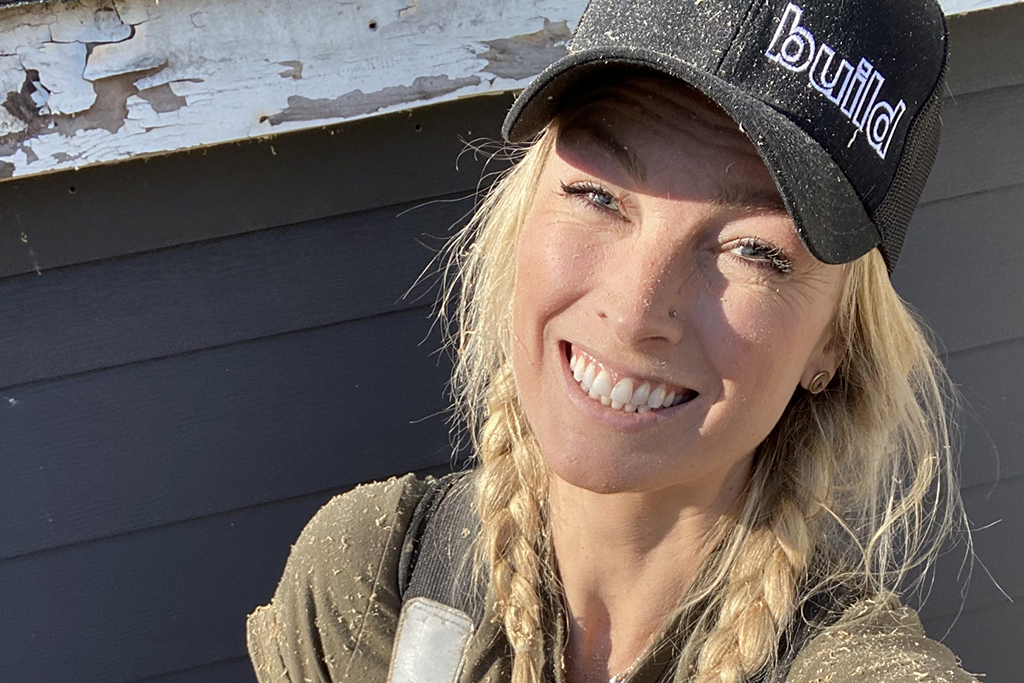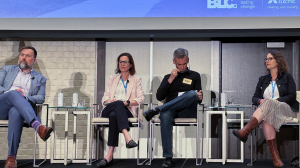An HGTV star and construction advocate is calling for better roles and less roadblocks for women entering and staying in the skilled trades.
Kate Campbell is a former cast member of numerous renovation television programs, a contractor carpenter and an advocate for women in the skilled trades but her path into these careers was anything but normal.
Campbell was the keynote speaker at the British Columbia Construction Safety Alliance’s (BCCSA) Safety Conference, held recently in downtown Vancouver.
Campbell went through school as a star athlete with top academic scores but wasn’t inclined to go to university once it came time to make a decision. By chance her mother showed her a newspaper article about a skilled trades program for women in Burlington, Ont. which she said changed the course of her life.
“The course was the Women in Skilled Trades Enhanced Carpentry program, and I thought to myself, ‘Why didn’t this conclusion come to me earlier?’ I would have missed it if my mother hadn’t slid a newspaper across the table,” Campbell said.
Campbell applied to the HGTV program Holmes on Homes once she completed the course in order to fulfill 100 required hours of work experience and she said at first the experience was overwhelming.
“You’re kind of shaking in your work boots and it’s intimidating to walk on to a jobsite as a woman to begin with and then to walk out to a jobsite with cameras on you, being asked technical questions about what you’re doing in the industry, and then to put together sentences that make sense while also building and learning was a challenge, to say the least,” she said.
While the job was a challenge, she also saw opportunities not only for herself but for representation of others in the industry.
“I don’t think I embraced how much of an opportunity it would be for me to really put a spotlight on women in the skilled trades, but throughout my career, I realized as I was a part of more TV shows, that I was one of the only women on jobsites, that there needed to be some tough conversations and that I could really encourage change within the industry as well,” she said.
While she said Holmes on Homes was an inclusive and encouraging environment, she has run into many roadblocks during her career and her being “thick-skinned” is what allowed her to get past obstacles that shouldn’t be present in the first place.
“Thick-skinned is a good quality, but it shouldn’t have to be, which is why these roadblocks need to be removed. Being able to walk on a jobsite, feeling confident that you belong there with proper work gear that’s sized for you as well. When I started in the trades 16 years ago I had the option of two work boots and one of them was pink. If you want to be considered a professional in a jobsite, you also have to have the proper gear,” Campbell said.
“Providing mentorship to women as well and allowing them access to information so they know they’re not alone, and as an employer being the one to step on a jobsite and ask the question, ‘how can I be an ally if you need one?’”
Stereotypes about the industry persist, Campbell said, such as the notion that the skilled trades are a consolation prize for those who don’t go to university. Attitudes are shifting but she said not only is high school too late to change young people’s minds but that parents should also be involved in the process.
“I’ve had several students come up to me and say, ‘I’d love to get into the skilled trades, but that’s not even an option for me because my parents won’t allow it.’ It also made me realize I was very fortunate to have supportive parents,” she said.
“A lot of kids do not have the same support. Their parents went to university so they want their kids to follow the same path even if they know it might not be the best career for them. Over the years my conversations, the way I would speak and events I want to be a part of have shifted in terms of who I think we need to target. I think parents are a crucial element of that change.”
Follow the author on Twitter @JOCFrey.











Recent Comments